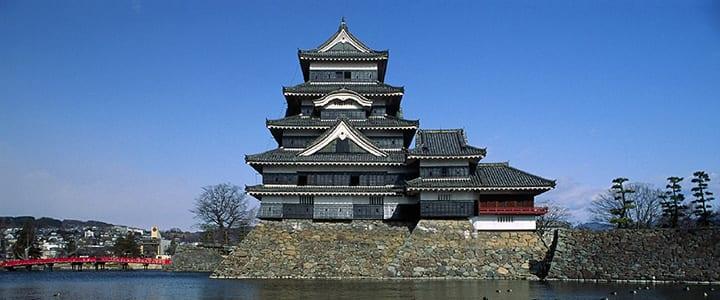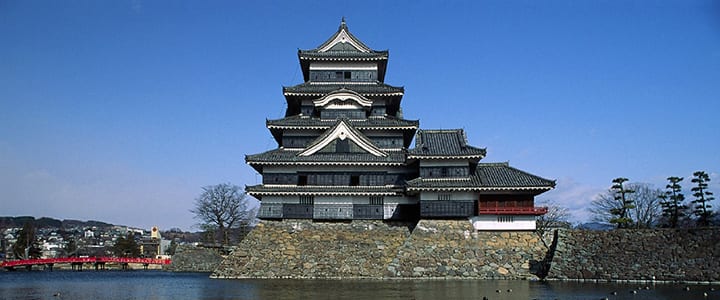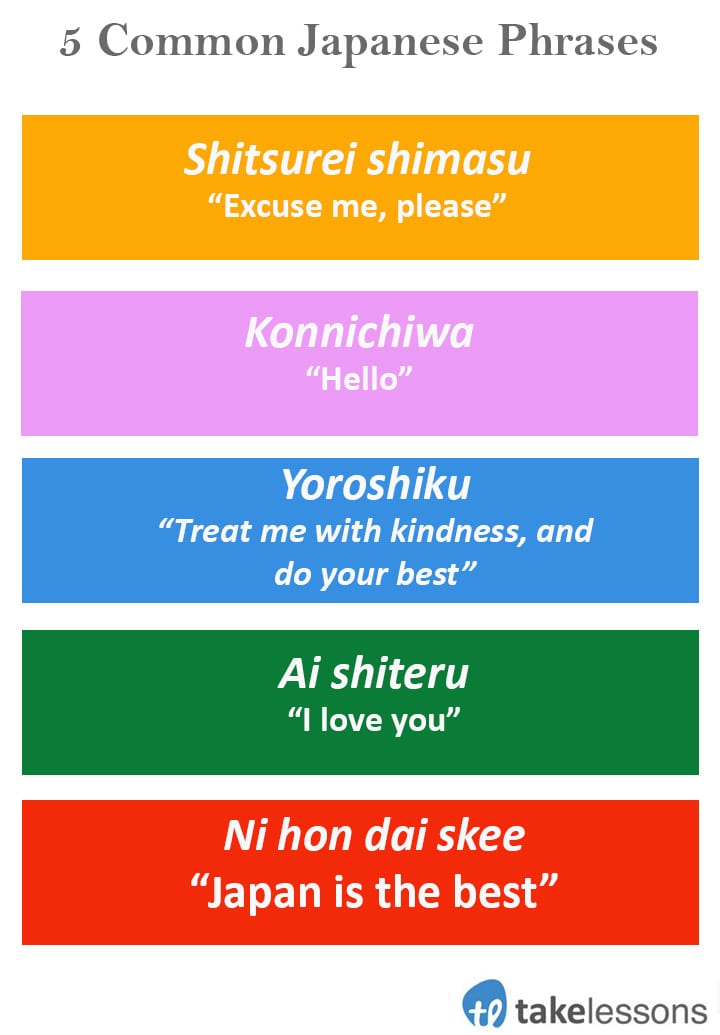Japanese people are full of life in their expression and communication, which makes the language very fun and interesting to learn.
The language has become globally accepted, so whether you’re planning a trip to Japan or just looking to broaden your horizons, you can definitely benefit from learning basic Japanese vocabulary.
Here are some common Japanese phrases to get you started.
1. Shitsurei shimasu
Shitsurei shimasu means “excuse me, please.” The literal translation of the phrase is “I will do something rude.”
The Japanese people are very polite, so it’s important to reciprocate their gracious nature by being as courteous as possible. You can use this phrase before you introduce yourself, or before you interrupt a conversation.
O jama shimasu is another similar phrase which means “I will disturb you,” so you can use it in conversation to say “sorry to bother you.”
These phrases will help you show proper etiquette if you’re traveling to Japan or interacting with Japanese people.
2. Konnichiwa
As far as useful Japanese phrases go, this is probably the most common greeting. It means “hello,” and it’s always important to start a conversation with a greeting. It’s also an easy phrase to remember.
You can follow the phrase with hajimemashite, which means “pleased to meet you.” These two phrases can help you start a conversation.
3. Yoroshiku
Although it’s hard to find an exact English translation, yoroshiku is a word you can use to make requests and express gratitude.
One way to explain the meaning is to say “treat me with kindness and do your best.” Once you say this, you can follow it up with the word onegaishimasu, which means “please.”
Together the two words mean “please treat me with kindness and do your best.”
4. Ai shiteru
Beyond simple greetings, let’s talk about how to express feelings and emotions. Ai shiteru is the literal Japanese translation for “I love you.” There are actually several different ways to say “I love you” in Japanese, and if you’re interested you can learn more about them here.
You can also use watashi anata ga suki desu, which means “I like you,” if you want to express affection but feel like “I love you” is too strong.
5. Ni hon dai skee
“Nihon dai skee” means “Japan is the best,” or “I love Japan.” This is one of the most useful Japanese phrases because Japanese people take a lot of pride in their country, and this helps you your show appreciation for the country and the culture.
If you’re site seeing you can also use, “koh nah ni kee ray na to ko ro wa hah jee meh teh mee tah,” which means “this is the most beautiful place I have ever seen.”
These phrases can help you if you’re visiting Japan, learning the language, or simply interested in the Japanese culture.
Want to learn more Japanese? Sign up for private lessons with a Japanese teacher today!
Photo by Renny Abraham
Maile Proctor



